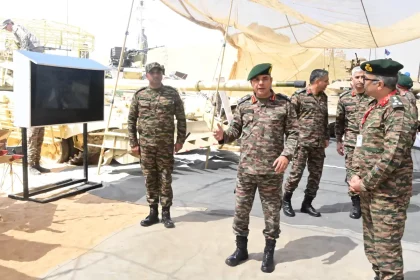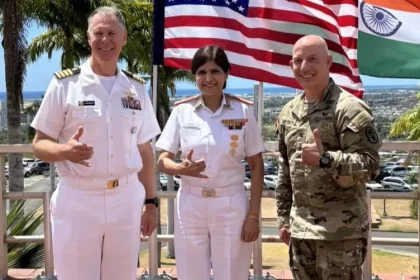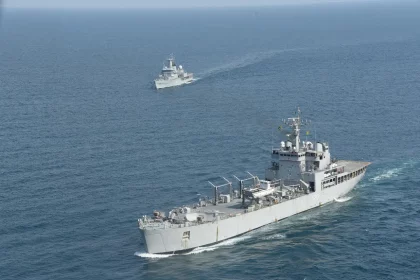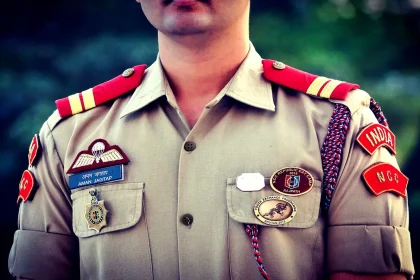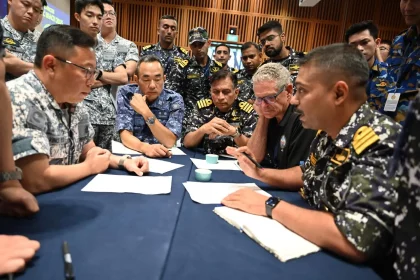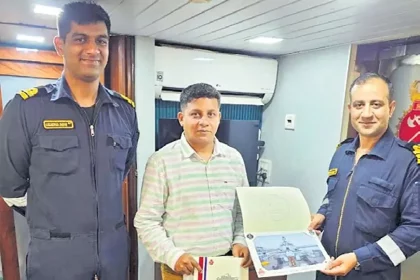Lt Gen AVS Rathee Reviews Operational Preparedness of Black Mace Brigade
Stationed under the Konark Corps, the brigade plays a vital role in safeguarding national security.
Vice Admiral Arti Sarin Leads AFMS Delegation to US INDOPACOM Medical Facilities in Hawaii
This visit marked a significant step in furthering Indo-US defence medical cooperation.
Indian Navy Set to Float ₹80,000 Crore Tender for Amphibious Warships; L&T, MDL, CSL Among Main Contenders
₹80,000-Crore LPD Project to Boost India’s Amphibious Warfare, with Indian Shipyards Leading Construction and Global Partners Providing Advanced Technology.
How to Earn the Para Wing Badge in NCC – Complete Guide 2025
Earning the Para Wing Badge in the NCC is a transformative journey that combines physical prowess, mental fortitude, and unwavering…
INS Nistar Arrives in Singapore for Exercise Pacific Reach 2025 to Conduct Deep-Sea Diving and Submarine Rescue Drills
INS Nistar Demonstrates India’s Submarine Rescue Capabilities and Maritime Self-Reliance at Prestigious Multinational Exercise.
Indian Navy Felicitates Karwar Man for Heroically Saving Navy Officer
Nagaprasad Raikar of Karwar honoured by the Indian Navy for rescuing Navy officer Saketh Kashyap after he fell on railway…

